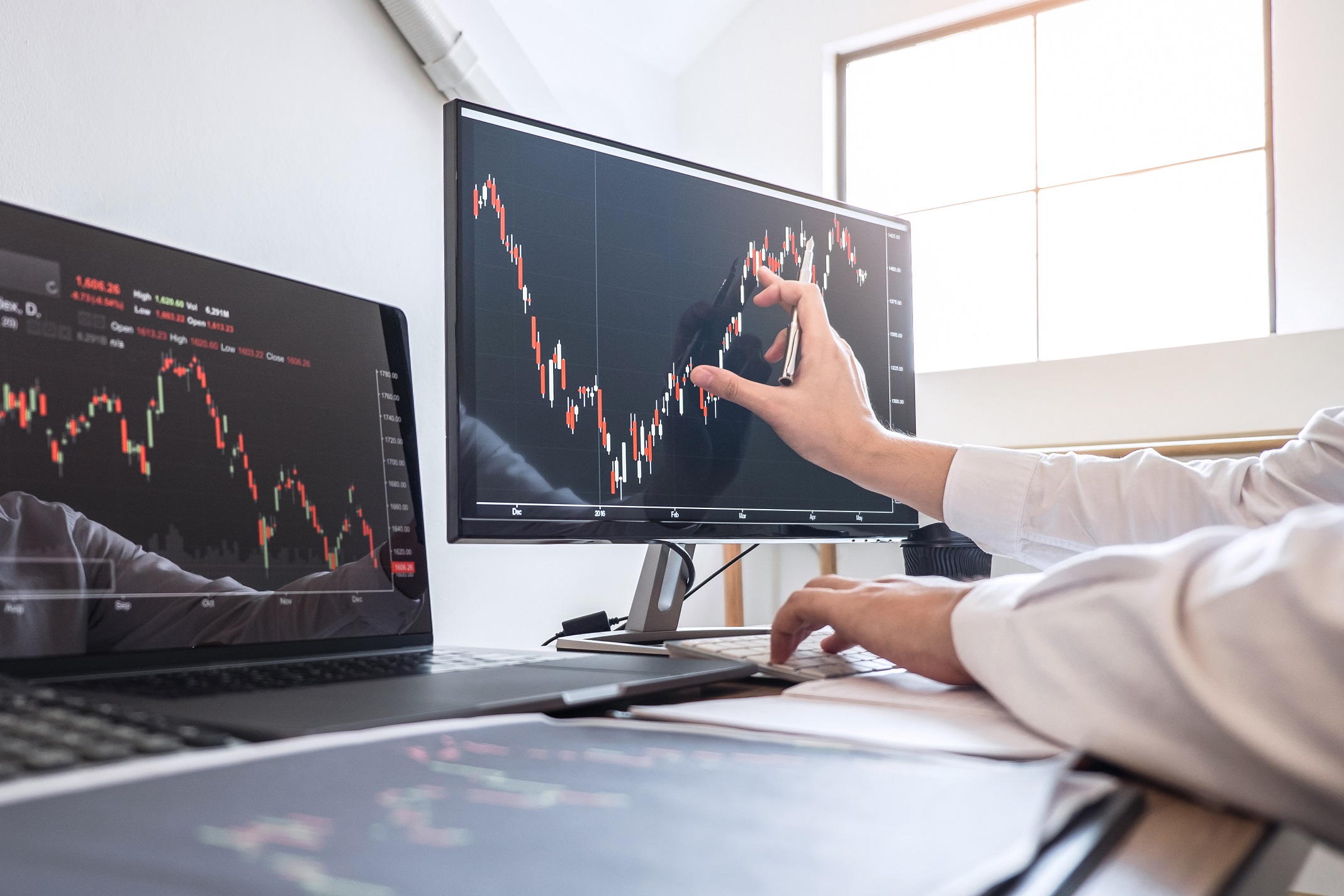عندما أسأل طلبتي بمعهد الصحافة وعلوم الإخبار في تونس عن طموحاتهم المستقبلية، أسمع إجابات من قبيل: أريد أن أصبح "مذيعا تلفزيونيا"، أو "مراسلا حربيا"، أو "صحفيا رياضيا إذاعيا"، وحتى "محللا سياسيا" في بعض المرات. الكاميرا تسحرهم، ومن لا يحبون الكاميرا، يفضلون الراديو، والبعض تغريهم الصحافة المكتوبة.
الصحافة كما يرونها تكون أمام الكاميرا أو الميكروفون، لا أحد يحلم بأن يقضي جزءا كبيرا من وقته وراء الحاسوب قصد التعامل مع عدد كبير من الأرقام أو المُدخلات. يبدو ذلك مرهقا ولا علاقة له بالعمل الصحفي، ولا يقارَن بالصورة المبهرة للمذيعة الأنيقة التي تحاور سياسيا بذكاء، ولا بمراسل تحت المطر ينقل مطالب المحتجين.
لا يعني ذلك أن ثمة مشكلة في أن يصبحوا مقدمي برامج أو مراسلين أو إعلاميين معروفين، بالعكس هذا شيء رائع! ولكن هذه هي الأمور التي تدفعهم إلى اختيار الصحافة، وليس العمل مع البيانات أو حتى تحويل الأرقام إلى مواد بصرية، فتلك مسائل معقدة لا نملك لها الوقت وقد لا يهتم بها الجمهور، هكذا يقول بعضهم.
الاهتمام بتدريس صحافة البيانات في عدد من الجامعات العربية يعد بحد ذاته مؤشرا مهما على تأقلمها مع حاجيات سوق العمل وتطور الممارسة الصحفية في العالم. كنتُ أكثر قربا بطبيعة الحال من واقع تدريس صحافة البيانات بمعهد الصحافة في تونس، وبحسب مديرة المعهد الدكتورة حميدة البور، بدأ التفكير في اعتماد صحافة البيانات منذ موسم 2013-2014، وتم الاتجاه إلى تنظيم دورات تدريبية وورش خاصة بها أو تدرَّس ضمن مواد أخرى. بعدها، تطوّر الأمر إلى حد اعتمادها مادة منفصلة.
حاولت أيضا أن أجمع معلومات حول تدريس صحافة البيانات في العالم العربي. هناك كثير من التجارب المهمة التي تحاول أن تتأقلم مع تطور الصحافة في العالم وتغيّر حاجيات السوق. في مصر حيث تشق عدد من المؤسسات الإعلامية طريقها في مجال صحافة البيانات، بدت الحاجة إلى التكوين في هذا المجال ضرورية، وانطلق دبلوم الإعلام الرقمي باللغة العربية في يناير/كانون الثاني 2019، وتدريس صحافة البيانات ضمنها في يونيو/حزيران من العام نفسه.
لقد انطلق تصميم المواد من حاجيات السوق في مصر ومنطقة الشرق الأوسط، وأيضا نتيجة وجود نقص كبير في تدريس صحافة البيانات بكليات الإعلام التي تمت دراستها عند تصميم الدبلوم، حسبما تخبرنا دينا سعد المديرة المشاركة للتنمية المهنية بمركز "كمال أدهم" للصحافة التلفزيونية والرقمية في الجامعة الأميركية بالقاهرة. ويستهدف دبلوم الإعلام الرقمي خريجي الجامعات بتقدير جيد أو أكثر، أو من لديهم خبرة مهنية لسنتين على الأقل إذا كان التقدير دون الجيد.
كما يُدرّس تخصص صحافة البيانات في عدد من الجامعات اللبنانية مثل كلية الإعلام بالجامعة اللبنانية التي تُعنى بعلم البيانات. الجزائر أيضا خاضت التجربة، فرغم أنها لا تدرس اليوم صحافة البيانات كتخصص قائم الذات، فإنها أدخلت مساق الصحافة العلمية بين عامي 2010 و2017 لطلاب الماجستير.
في هذا السياق، يؤكد أستاذ الإعلام في جامعة مستغانم، الدكتور العربي بوعمامة أنه "ثمة دورات تدريبية وورش عن الصحافة الإلكترونية والورقية تنظم لطلاب الماجستير. وقد تم تنظيم نحو أربع ورش تهتم بصحافة البيانات، أملتها بداية اهتمام الإعلام الجزائري بهذا النمط الجديد من الصحافة".
لماذا نُدرس صحافة البيانات؟
طوال سنوات، درّستُ اختصاصات مختلفة في معهد الصحافة بتونس، منها تصميم البيانات لطلبة الماجستير المهني في الصحافة الاستقصائية. ومنذ يناير/كانون الثاني 2020، شرعت في تدريس مادة الإعلام وصحافة البيانات لطلبة السنة الثالثة إجازة أساسية في علوم الإعلام والاتصال. كانت بطبيعة الحال تجربة فريدة في ظل التغيرات التي فرضتها علينا الجائحة، ولكن ذلك هو الاستثناء، أما القاعدة فهي أنني كنت أعرف أن تدريس صحافة البيانات ليس أمرا سهلا.
لا شك أنني استمعت في أكثر من مناسبة إلى ردود فعل -كانت متوقعة- منها "ليس لهذا دخلتُ معهد الصحافة". باختصار، الصحفي -في نظرهم- إما يقف أمام الكاميرا أو يتحدث عبر الميكروفون أو يكتب ورقيا أو إلكترونيا. الصحفي لا يعمل على برنامج مايكروسوفت إكسل، وليس عليه أن يعرف كيف يتعامل بشكل متقدم مع الحاسوب، لأنه ليس مبرمِجا ولا خبيرا في تصميم الغرافيك.
عندما أسأل عن الاهتمام بالرياضيات، قلة قليلة في القاعة كانوا ممن درسوا في هذه الشعبة خلال المرحلة الثانوية (حتى أنا درستُ في شعبة الآداب)، ولكن المشكلة لا تكمن في معرفتك بالرياضيات من عدمها، وإنما في الخوف المبالغ فيه منها. أما عندما كنت أسألهم -في حصص متقدمة- إن كانوا يفكرون أن يصبحوا صحفيي بيانات، كان البعض منهم متحمسا جدا.
ولكن التجربة لا تخلو دائما من التحديات، ففي السنة الماضية درست نحو 40 طالبا، وهذه السنة سأدرس صحافة البيانات لطلاب جدد، ومن المهم مع كل درس أن نحدد أهدافنا من هذه الدراسة، فلماذا ندرس صحافة البيانات؟ لدي إجابات سريعة مثل:
- هي تخصص مطلوب اليوم.
- صحفيو البيانات مطلوبون أكثر من غيرهم في سوق العمل.
- نعيش عصر البيانات التي أصبحت متاحة أكثر من ذي قبل.
- هناك أدوات كثيرة مفتوحة المصدر متوفرة للتعامل مع البيانات.
ولكن، هل يعني ذلك أن كل من يدرس مادة صحافة البيانات في الجامعة سيصبح صحفيّ بيانات؟ أعتقد أن هذا الأمر ليس هو الهدف الحقيقي، وأن الإجابة هي أن يعرفوا وفقط.
في النهاية، الأهداف من تدريس صحافة البيانات في الجامعة متعددة، أولها من وجهة نظري هو التعرف على عالم البيانات وكيفية توظيفها في الصحافة، سواء أصبحنا صحفيي بيانات أو كانت البيانات من بين المصادر والأدوات التي نعتمدها في قصصنا. وثانيها أن نتمكن من تجاوز كل الحواجز التي يمكن أن تعترض طريقنا -تقنية كانت أم علمية- حتى نصل إلى القصة.
تدريس صحافة البيانات ليس سهلا
أذكر أنني كنت أحب مادة الرياضيات في الثانوية، خاصة تمارين البحث عن المجهول "إكس"، وكلما كانت المعادلات أصعب كان التمرين أكثر تشويقا. ولكن صعوبة تدريس صحافة البيانات لا تكمن في كون البيانات أو الأرقام أمرا مخيفا، وإنما في كونك ستواجه تحديات عدة عليك تجاوزُها، وأنت تُدرك جيدا أن الهدف ليس تدريس علم الإحصاء أو تصميم الغرافيك، بل الصحافة.
هذه بعض الدروس التي تعلمتها:
- نحن جميعا مختلفون
لا يملك الطلبة نفس المستوى في المهارات المطلوبة في صحافة البيانات، فبعضهم يملكون معرفة محدودة باستخدام الحاسوب، وآخرون يمقتون الأرقام، وربما يتخوفون منها. ولكن حتى لو لم يمكّنّا ذلك في أحيان عديدة من التعمق أكثر في بعض المحاور، فمن المهم أن نعرف أن هدف الدراسة ليس أن نصبح أفضل صحفيي بيانات في العالم، بل أن نتجاوز هذه المخاوف ونتغلب عليها. بمجرد أن نتعرف ونتصالح مع هذه المخاوف والنواقص، يصبح استيعاب المعارف أسهل.
علينا أن نعرف أيضا أن الخوف من البيانات والرياضيات (Dataphobia & Math aversion) مشكلة تواجه أساتذة صحافة البيانات حول العالم (Bradshaw, 2018; Graham, 2018; Hannis, 2018)، وأنها ستكون حاضرة في كل حصة أولى من أي درس صحافة بيانات، لذا من المهم أن نتجاوزها منذ البداية. فليس هذا درس رياضيات أو إحصاء، بل هو درس في الصحافة. ولكن عندما ندرس صحافة البيانات، سنطوّر عديد المهارات الأخرى التي قد لا تكون موجودة عند طالب الصحافة، وذلك جزء من التحدي: بعض المهارات الرياضية والإحصائية هنا، وبعض مهارات تصميم الغرافيك هناك، إلى جانب بعض المهارات الحاسوبية… إلخ يجب أن ننجح في أن يرى الطالب أن في الأمر فرصا أكثر من العقبات.
- البيانات ليست صادقة دائما
ما إن نتجاوز الخوف من البيانات، حتى تصادفنا الخشية من الوقوع في المشكلة المقابلة، وهي الوثوق في البيانات بشكل مبالغ فيه، أو "Data-ism" كما يسميها ديفيد بروكس صحفي "نيويورك تايمز" والمحاضر بجامعة "يال" حتى العام 2018، ويقصِد بها الافتراضات الثقافية المرتبطة بالنفاذ إلى البيانات، والتي تقوم على منطق أن هذه البيانات هي بمثابة "عدسة شفافة وموثوقة" يمكن من خلالها أن نتخلص من كل ما يلوث الحقيقة، سواء من المشاعر أو الأيديولوجيا، وحتى أن نتنبأ بالمستقبل، وهو ما ينتقده بشدة.
- من يأتي أولا: البيانات أم القصة؟
من الأسئلة التي يمكن طرحها عند تدريس صحافة البيانات: من أين نبدأ؟ هل نبدأ بالبيانات ثم ننتهي إلى تصميمها أو نقلب الآية؟ خلال السنة الماضية، بدأت بشكل تدريجي من البيانات إلى التصميم، ولكنني قررت في منتصف السداسي أن أدخل بعض التغييرات على هذا المنحى، ماذا لو عرّفتهم على النهاية قبل أن نواصل التدرج في تعاملنا مع البيانات؟ ربما قد يحمسهم ذلك أكثر، فالسرد القصصي أمر يعرفونه وشعورهم بأن ما نقوم به لا ينتمي إلى علوم البيانات بل إلى الصحافة؛ قد يكون فكرة جيدة. في الحقيقة، يلجأ إلى هذا الأسلوب عدد من أساتذة صحافة البيانات حول العالم.
- قاعة الدرس ليست غرفة أخبار
لا يمكن أن تكون قاعة الدرس قاعة أخبار، يمكن أن تكون شبيهة بها أو نحاول إعادة إنتاج التجربة، ولكن هناك اختلافات عميقة، فما يُنتج في قاعة الدرس يهدف إلى خدمة هدف بيداغوجي هو التعلم، بينما هدف ما يُنتج في قاعة الأخبار هو النشر. ومن الطبيعي أيضا أن تكون هناك فجوة بين ما يحدث خارج قاعة الدرس وما يحدث داخلها، فمثلما يقول الصحفي وأستاذ صحافة البيانات بول برادشو: مهما طورنا من محتويات درس صحافة البيانات وأسلوبه، فلا يمكنه أن ينافس التطور المستمر الذي يعرفه اختصاص صحافة البيانات على أرض الواقع. هناك دائما أدوات جديدة ومناهج جديدة وتقنيات متحولة. ولكن يبقى المهم أن يتمكن الطالب من المفاتيح التي تخوّله استخدام البيانات وتوظيفها في القصص الصحفية، أو بناء قصة كاملة حولها وعرضها بصريا بشكل مشوّق وإيصال المعلومات إلى الجمهور. ولكن في بعض البلدان العربية وإلى جانب تطوير المقررات الدراسية، نحتاج أيضا إلى نشر ثقافة البيانات، ليس لدى الطلبة فقط، بل أيضا لدى المؤسسات الإعلامية نفسها.
- مهارات غير مرتبطة بالبيانات
يتعرف طلبة صحافة البيانات -من خلال الدروس التي تقدِّم لها- على عديد المهارات التي لا ترتبط بالصحافة بالضرورة، مثل استخدام برامج أو أدوات معينة أو حتى مبادئ لغات برمجية أو معارف إحصائية أو تصميمية. كل شيء من هذه المعارف والمهارات لا يعني شيئا لوحده، وليس الهدف هو تعلم هذه الأدوات أو إتقان اللغات البرمجية أو احتراف قواعد التصميم البصري، بل ندرس كل هذه الأمور لنوظفها في إنتاج قصص قائمة على البيانات، ولكن قد تكون مفيدة أيضا في قصص أخرى.
الدراسة وحدها لا تكفي، فصحافة البيانات حقل متفرع ومترابط مع حقول كثيرة، ولا يمكن لفصل دراسي أو حتى لعام دراسي أن يأتي على كل شيء، ولكنه يستطيع أن يغطي أهم المحاور والمهارات التي يجب أن تتوفر لدى الصحفي، ثم على الطالب أن يبحث ويجرب ويطوّر مهاراته.
في سبتمبر/أيلول 2019، كانت لنا في معهد الصحافة بتونس فرصة لاستضافة طلبة وأساتذة من جامعة واشنطن الغربية في الولايات المتحدة، وخصصنا يوما كاملا للبيانات وإنتاج قصص مشتركة بين الطلبة. في الحقيقة كانت تلك أول مرة أشارك فيها في تدريس صحافة البيانات لطلبة من الولايات المتحدة، كنت أعتقد أنهم قد يكونون متمكنين من المادة جيدا، رغم أنني أعلم أن التحديات متشابهة، ولكن هؤلاء الطلبة يعيشون في بلد يعطي أهمية كبرى للبيانات والاشتغال عليها، إذ تحتل الولايات المتحدة المرتبة الحادية عشرة في العالم في مؤشر البيانات المفتوحة، بينما تونس في المرتبة السادسة والستين.
ولكن المستويات كانت متقاربة، وتمكّن الطلبة معا من إنتاج قصص وتصاميم بصرية بالاستعانة ببرنامج "داتا رابر" (Datawrapper). مثل هذه التجارب مفيدة للطلبة لأنها تعينهم على التفكير في كيفية تعاملهم مع البيانات، واختيار زوايا النظر، ومساءلة مدى تأثر خياراتنا بانتمائنا الثقافي. تجربة تتيح لنا اعتماد مقاربة سريعة لتعليم الطلبة أهم شيء يجب أن يعرفوه عن صحافة البيانات في يوم واحد، وأن تكون القصة أساسا محلّ اهتمامهم، لأننا لم نخصص القسم الأكبر من الوقت للتعمق في الأدوات، بل لنعرف ما يجب أن نعرفه عنها من أجل تحقيق هدفنا: إنتاج قصص صحفية جيدة.
من المهم أن نتعامل مع أية تحديات تطرح أمامنا بكثير من المرونة، وهذا الأمر يذكرني بما قاله بول برادشو عندما اعتبر أن تدريس صحافة البيانات مثل الغاز الذي يأخذ شكل الوعاء الذي يحويه. وعلينا نحن أن نختار الوعاء المناسب الذي يجعل طلبتنا يهتمون بهذا الاختصاص ويشعرون أنه قريب منهم، إذ من المؤكد أن توظيف البيانات في الصحافة في العالم العربي وخلال العشر سنوات القادمة، سيعرف ارتفاعا.
ومن المهم أيضا أن نرسخ عند صحفيي الغد دراية واهتماما بالبيانات وتوظيفها في الصحافة، بعدها يمكن أن يشقوا طريقهم كما يريدون.
المراجع:
-Bradshaw, P. “Data Journalism Teaching, Fast and Slow.” Asia Pacific Media Educator, vol. 28, no. 1, 2018, p. 55_66. journals.sagepub, https://journals.sagepub.com/doi/full/10.1177/1326365X18769395#articleCitationDownloadContainer.
-Brooks, D. “The philosophy of data.” Nytimes.com, 5 February 2013, https://www.nytimes.com/2013/2/5/opinion/brooks-the-philosophy-of-data…. Accessed: 5/1/2021.
-Hannis G. Teaching Data Journalism in New Zealand. Asia Pacific Media Educator. 2018;28(1):124-130.
-Graham C. A DIY, Project-based Approach to Teaching Data Journalism. Asia Pacific Media Educator. 2018;28(1):67-77.
















![Palestinian journalists attempt to connect to the internet using their phones in Rafah on the southern Gaza Strip. [Said Khatib/AFP]](/sites/default/files/ajr/2025/34962UB-highres-1705225575%20Large.jpeg)
























